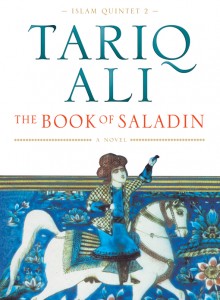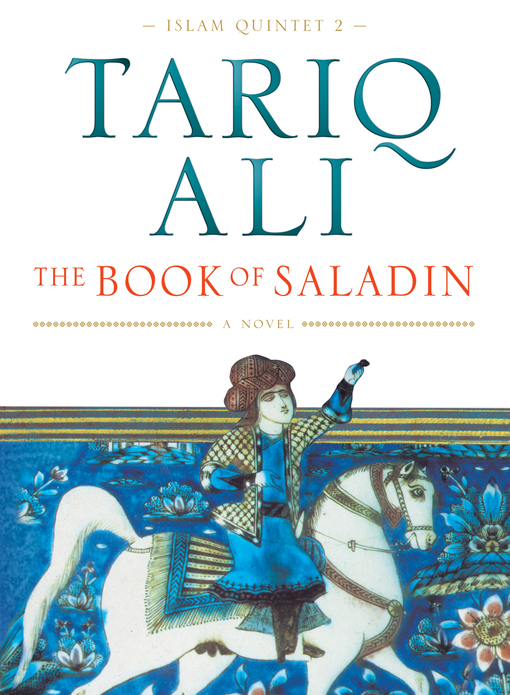
by Tariq Ali
Depending on the culture we were brought up in, Salah el-Din el-Ayyouby (Saladin) was either a heroic Muslim liberator, fighting his way through hordes of infidels and crusaders to liberate Jerusalem, or he was a mythical, barbaric monster who cheated, bribed and assassinated his way to power and in the process destroyed the Latin Kingdom in the Middle East. As with most historical enquiries, the truth lies somewhere in between, and author Tariq Ali is able to retain a measure of historical fact while weaving in a healthy dose of fictional intrigue for entertainment.
The result is a novel replete with war, sex, politics and characters that are far more human than all the dates and names a Wikipedia page could ever evoke. Wanting to keep the history behind Saladin intact, the book introduces a bare minimum of fictional characters. One is the narrator, who becomes Saladin’s scribe to put forth a coherent historical narrative without bias. The other imagined characters are all women, because as Ali himself puts it, “Women are a subject on which medieval history is usually silent.” They introduce a much-needed dose of temptation and whimsy to pad out the numerous accounts of warfare.
The pull of the novel is without a doubt Saladin himself. His accomplishments, described in detail in the novel, are extraordinary in their own right but it is his humanity that makes him accessible as a character. He errs, he falters, he loves and he bleeds like the rest of us. The Saladin of Ali’s book could almost be a friend of a friend, or a distant uncle, rather than the revered long-dead conqueror whose name garnered respect even in the camps of the invading Crusaders.
The novel is not action-packed in the conventional sense of the word, nor does graphic detail seem to be Ali’s style. Rather, its beauty lies in the simple philosophy that characterizes Saladin and the narrator’s meetings, the voice of dissent and skepticism that is one of Saladin’s wives and all the other tiny details that slot together into a rich mosaic of this often-misunderstood era. It should be read with care and detail, as it is quite easy to miss short scenes and conversations of simple yet elegant prose that elaborate on topics in religion, politics, skepticism, warfare and love.
The novel is part of a quintet whose books detail other significant historical events, such as the fall of the Ottoman Empire and the defeat of the Moors in Spain. That should not, however, deter potential readers as the novels are unrelated in content, linked together by nothing more than a passing connection to general Islamic history.
The Book Of Saladin, Tariq Ali
ISBN 9781859842317
available at Kotob Khan and Diwan Bookstore

